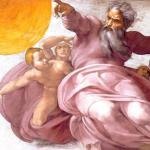For several decades, James Wood has bestridden the world of literary criticism like a Colossus. But Thomas Meaney suggests that there is something amiss in Wood-World.
Meaney argues that “What distinguished Wood from most of his contemporaries and immediate predecessors was his focus on matters of aesthetic liberty over social justice, and the suggestion that there was a choice to be made between them.”
The novel is, Wood has argued, the antidote to ideology and the passions of faith. In Meaney’s words, Wood “described the ‘formal task’ of fiction as the establishment of ‘a licensed freedom.’ By this he meant that the novel is an art form that, through its very method, can avoid the theological and ideological impulse by cleaving to uncertainty, multiplicity, doubt. The novel, he wrote, ‘moves in the shadow of doubt, knows itself to be a true lie,’ and it is here, for Wood, that the form’s fealty to the real can be found – a fealty that he sees as fiercely secular.”
But contemporary fiction doesn’t permit this retreat into aesthetic freedom: “politics – concerns about the proper shape and priorities of our society – have returned to the contemporary novel with little warning, in ways he could hardly have anticipated on setting out as a critic. The period of the ‘untroubled cultivation of the aesthetic,’ a time for which Wood was finely matched, now appears to have been more of an exception than a norm.”
This leaves the anti-ideological Wood at a loss: “There is something uncomfortable in Wood’s pieces these days, as if he knows he must somehow account for the political turn of novels, but is unsure how to integrate these concerns into his deep aesthetic commitments.”
I suspect there’s something else going on in Wood-World. Meaney notes that “Wood has sought to guard literature against claims of its being a kind of canonical religion, or pseudo-religion.” I wonder, though. Separating the aesthetic off neatly from the political is a religious act, the drawing of a sacred boundary. Politics is a defilement that disturbs the purity of fiction.
Wood is no George Steiner, but perhaps he ends up sacralizing literature just the same.












